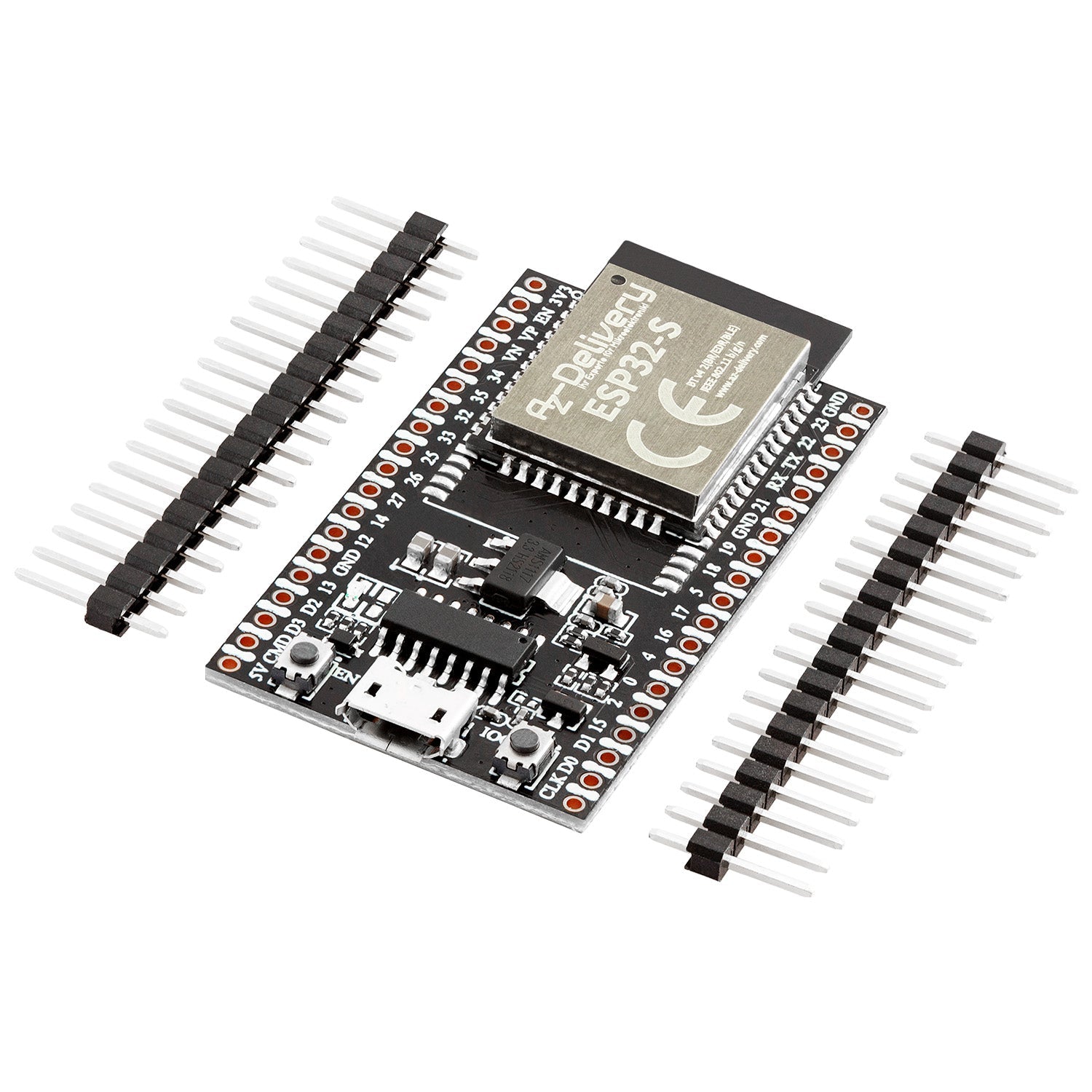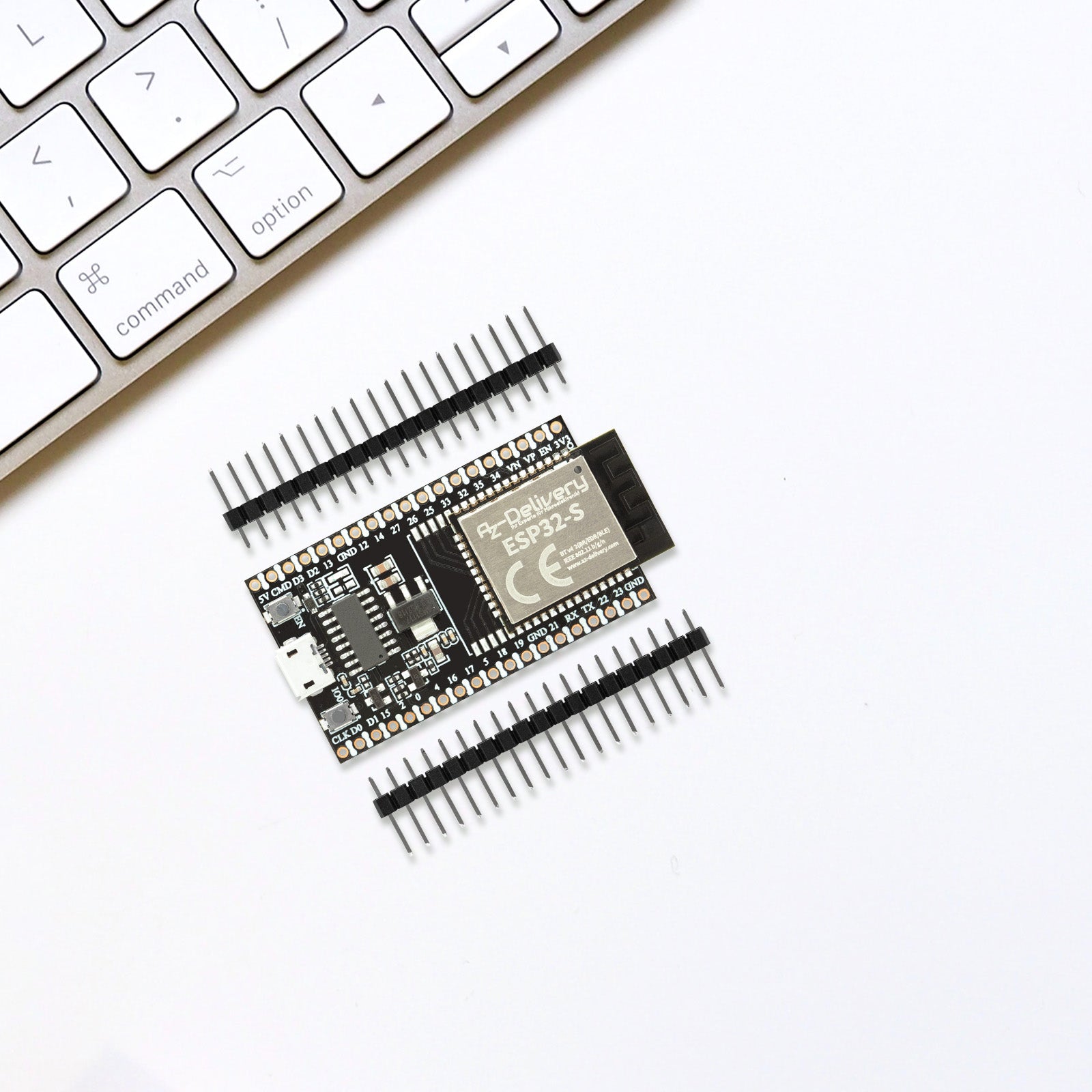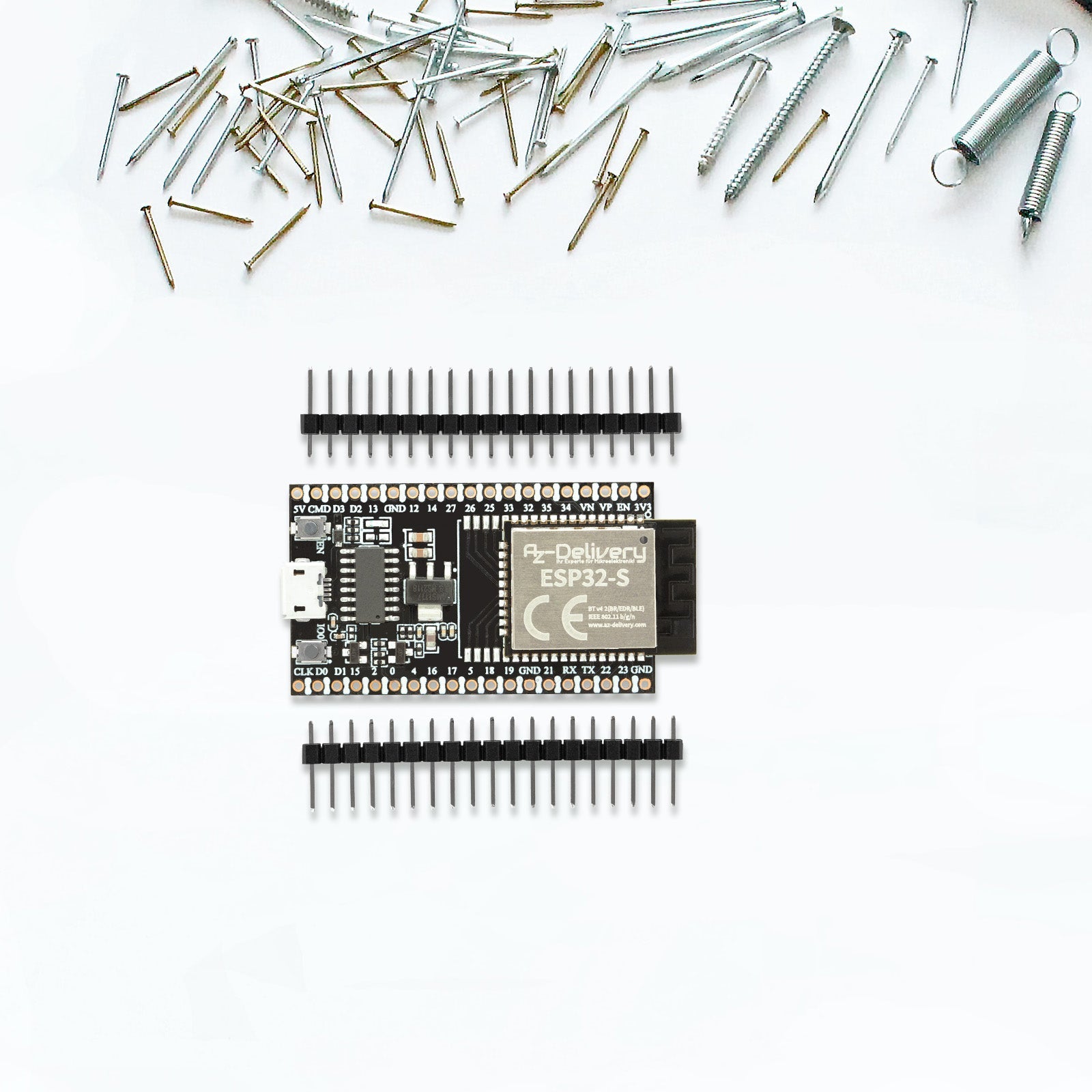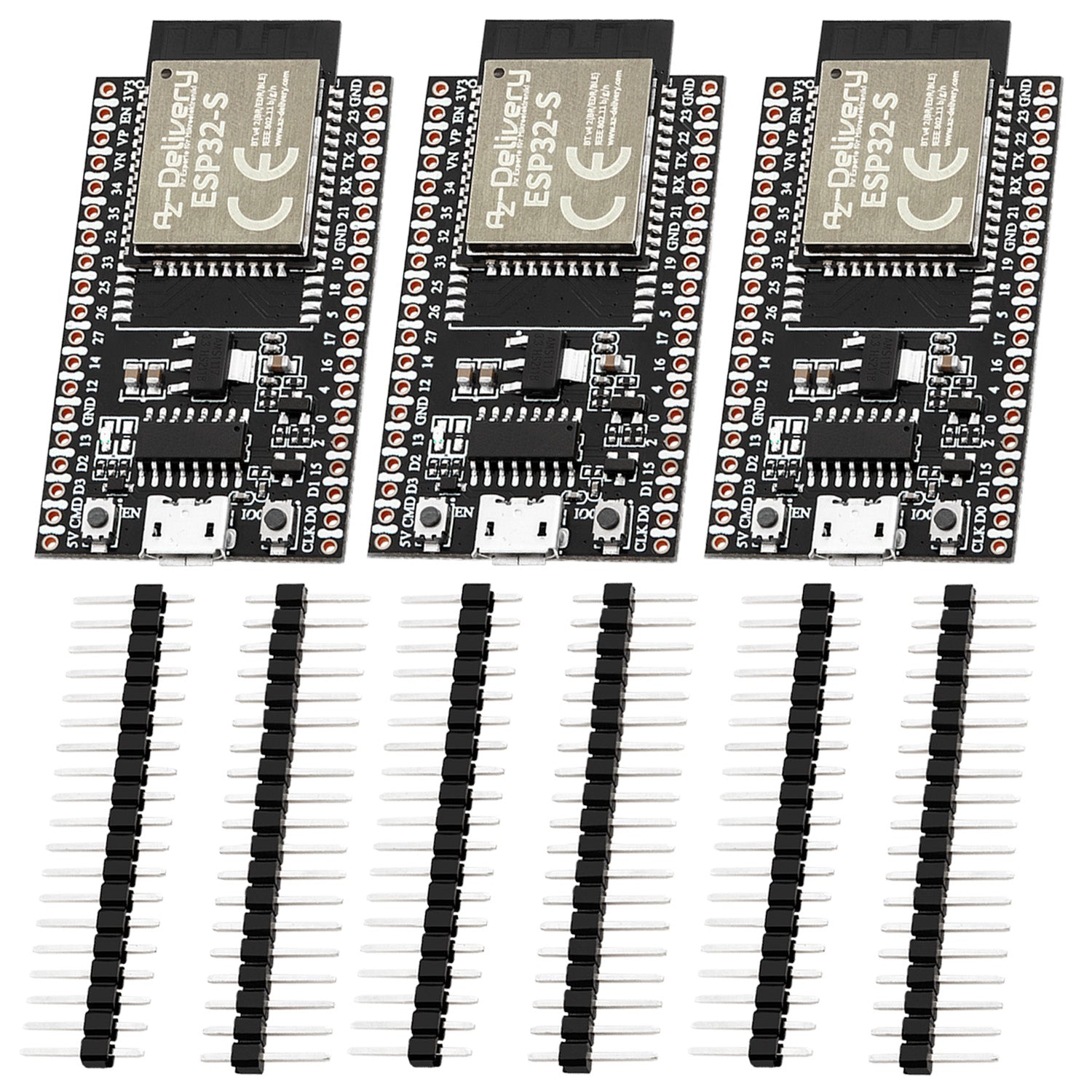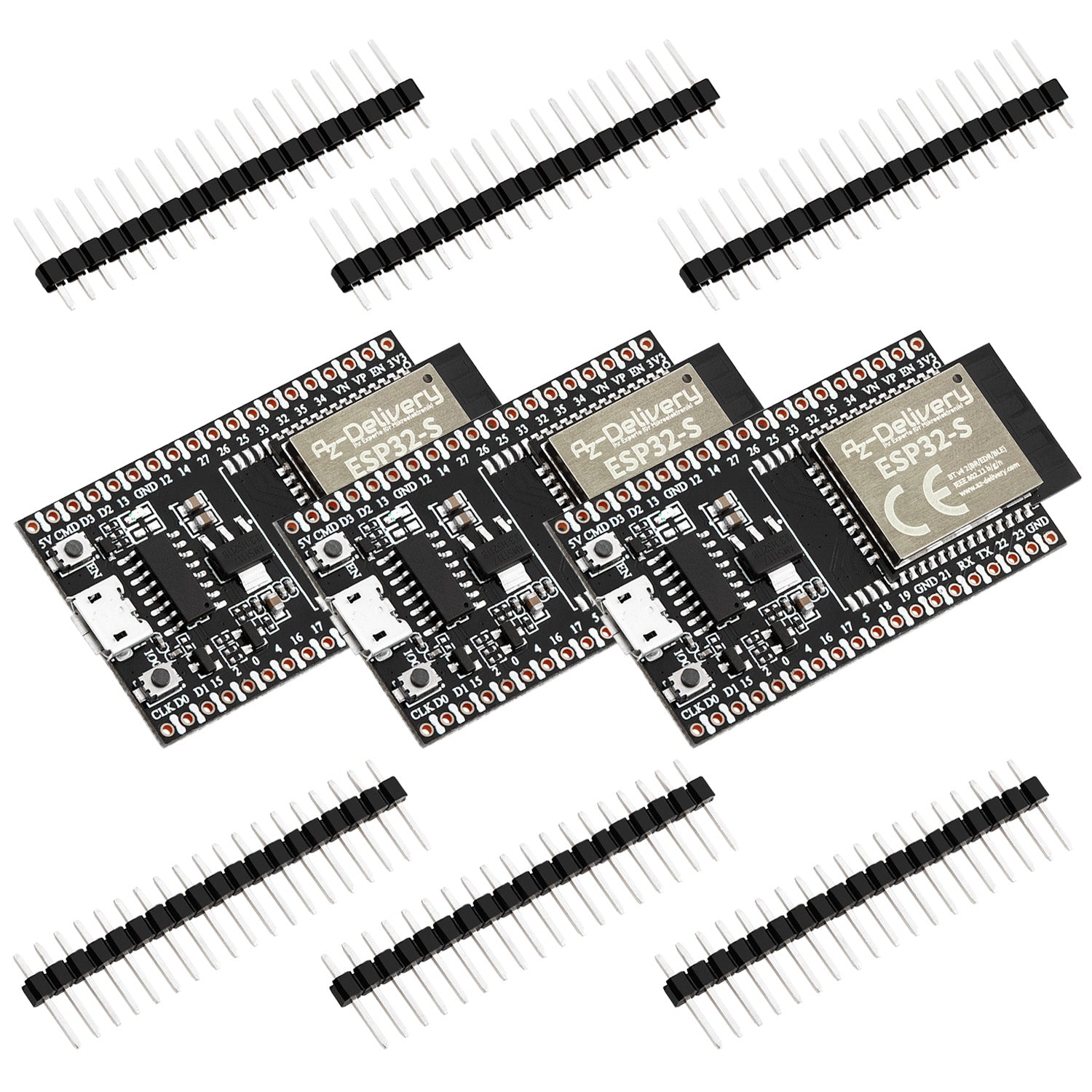Description
The AZ-Delivery ESP32S Dev Kit C V4 combines in a single microcontroller a CPU with 2 Tensilica LX6 cores, clocked at up to 240 MHz, and 512 kilobyte SRAM. In addition, it integrates a radio unit for WLAN (according to 802.11b/g/n) and Bluetooth (Classic and LE).
Compared to our alternative ESP32 Dev Kit version the ESP32 chip used here is a newer revision (Rev. 3). In addition, this board has the high-quality USB serial chip CH340 and even higher demands were made on the quality of the processing of the board.

Special features
- With the new board layout, both the power supply and the reset circuit for automatic programming have been significantly improved. Our dev kit is equipped with the ESP32S.
Technical details:
| Power supply (USB) | 5 V |
| Input/output voltage | 3.3 V |
| Required operating current | min. 500 mA |
| SoC | ESP32S |
| Clock frequency range | 80 MHz / 240 MHz |
| RAM | 512 kB |
| External flash memory | 4 MB |
| I/O pins | 34 |
| Interfaces | SPI, I2C, I2S, CAN, UART |
| Wi-Fi protocols | 802.11 b/g/n (802.11n up to 150 Mbps) |
| Wi-Fi frequency | 2.4 GHz - 2.5 GHz |
| Bluetooth | V4.2 - BLE and Classic Bluetooth |
| Wireless antenna | PCB |
| Dimensions | 56 x 28 x 13 mm |
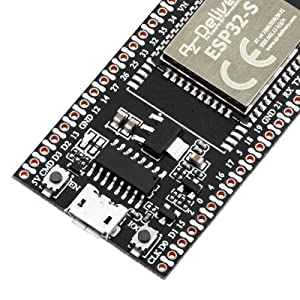
WLAN function
The WLAN function supports all common encryption methods, such as WPA2. In addition, it can also act as an access point or sniffer in the WLAN. UART, I2C, SPI, DAC, ADC (12 bit) among others are available via 32 GPIO pins, all GPIO pins can be used as input or output.

Quick Start Guide
We offer an extensive e-book library, regular blog posts with exciting projects, and an active customer community.
